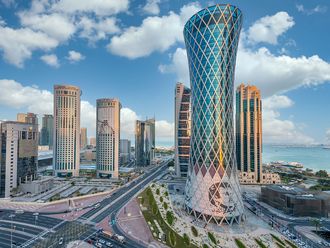
Dubai: The UAE has always been an attractive destination for people to live and work in. With the recent announcements made by the UAE government, introducing new types of entry and residence permits, you may be considering the option of moving to the UAE and becoming a resident.
If so, here is all you need to know about who can reside in the UAE.
Who can become a UAE resident?
According to u.ae, the UAE government’s official website, foreigners can live as residents in the UAE if they are:
• employed by a company in the UAE - in this case, the company will apply and sponsor your residence visa while you are in the UAE.
• employed by the government sector - in this case, the government entity will apply and sponsor your visa while you are in the UAE.
• investors in a business in the UAE - in this case, the investor himself will process and apply for his own visa under the sponsorship of his company’s registered name.
• buy a property in the UAE - in this case, the property owner’s residence visa will be sponsored under the property he owns.
• dependents that are sponsored by:
- someone who is employed in the UAE
- an investor/business owner in the UAE
- a property owner in the UAE.
Dependents include children, parents, maids and close relatives.
• university students sponsored by their universities in the UAE - in this case, the university will apply and sponsor your visa under the educational institution’s name.
• retired residents – in this case, special conditions apply.
Conditions for getting a residence visa
According to u.ae, a residence visa requires applicants who are 18 years and above to undergo a medical test to prove that they are medically fit. They must also pass a security check and apply for an Emirates ID card from Federal Authority for Identity, Citizenship, Customs and Ports Security (ICP).
How is a residence visa issued?
A residence visa is issued to a foreigner when he or she is already inside the country after entering the UAE via an entry permit, short or long-term tourist or visit visa. To know more about the difference between an entry permit and a residence visa, click here.
Once you enter the UAE on an entry permit, you will then need to start the process for visa application. It is important to note that the costs of processing a visa (which includes medical fitness test and Emirates ID costs) have to be covered by the sponsor. If your sponsor is your employer, then the company is legally required to ensure that they pay for the visa application process. If you are sponsoring your family or a domestic worker, then you need to cover all costs.
https://gulfnews.com/living-in-uae/visa-immigration/everything-you-need-to-know-about-getting-a-work-permit-and-work-visa-in-uae-1.1574343051107
Validity of a residence visa
The validity of stay on a residence visa varies according to its type and the sponsor. It can be for one, two, three, five or 10 years.
The UAE recently announced major updates to the long-term residence visa schemes, with options for a Green Visa (five-year) and Golden Visa (10-year) available to investors, skilled professionals, outstanding students and exceptional talents in the UAE. To know more, read our guide here.









